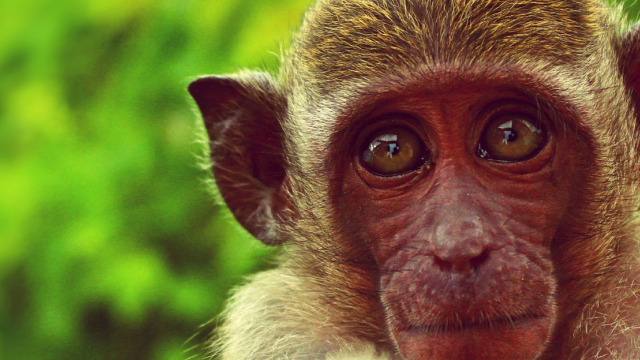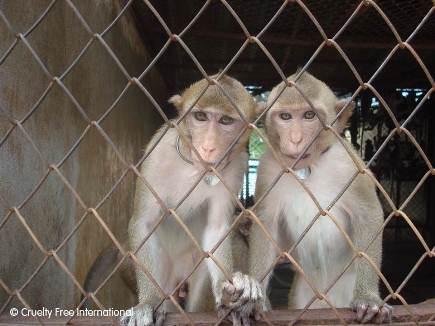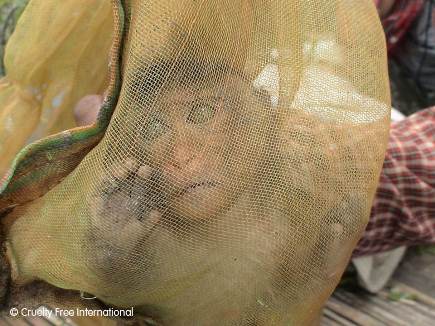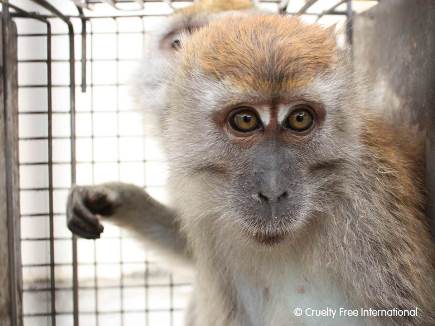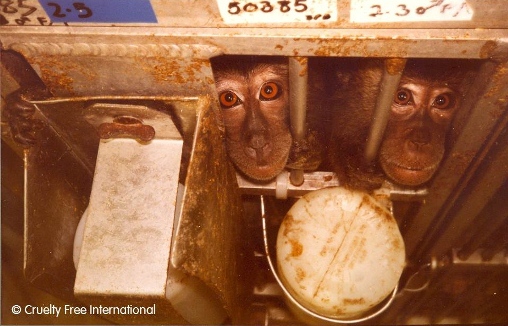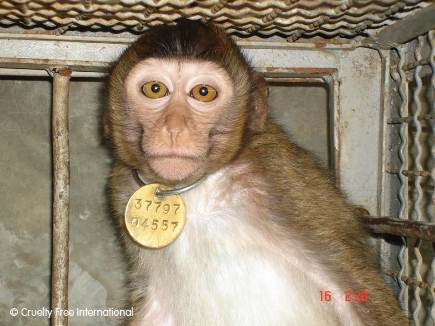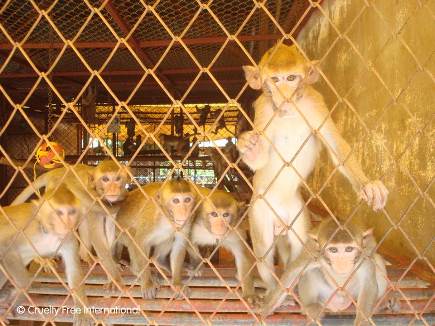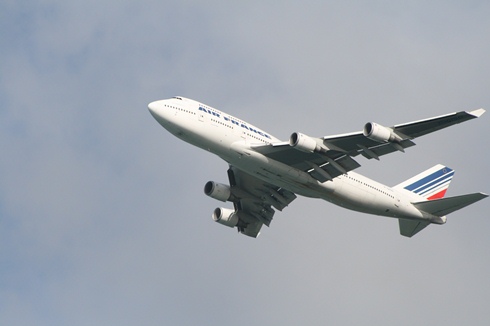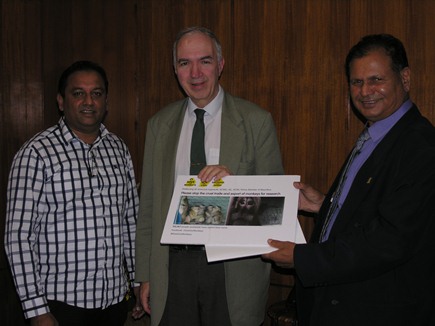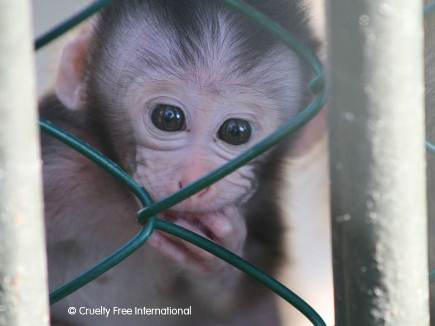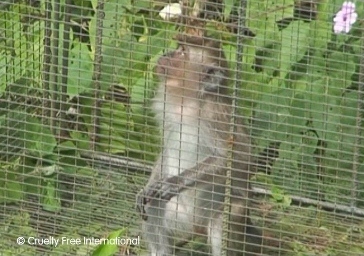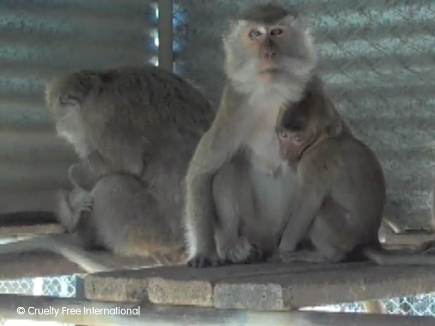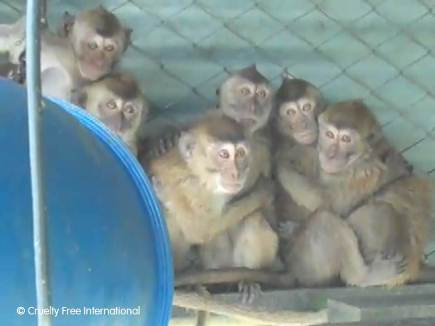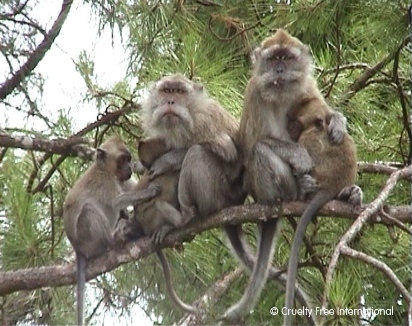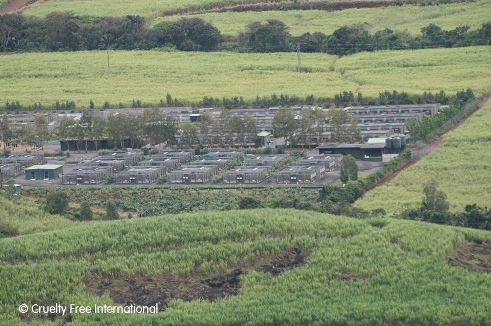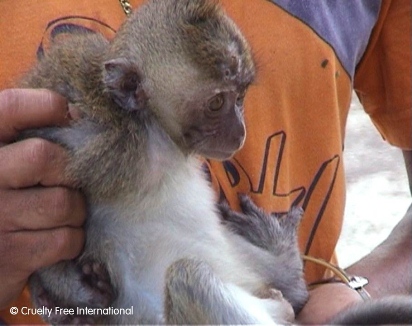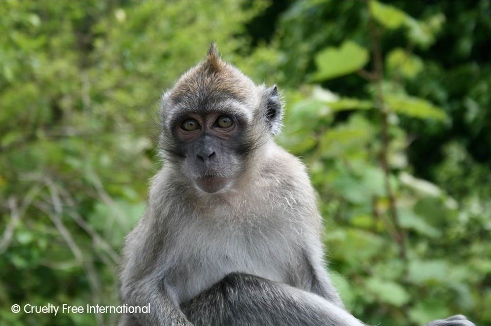Every year, tens of thousands of monkeys are traded globally for the international animal research industry. Some are trapped in the wild while others are bred in captivity, usually in concrete pens on large-scale facilities.
Mauritius, a popular destination for European holidaymakers, is one of the world's largest exporters of long-tailed macaques for the global research and toxicity testing industry and the main supplier to Europe, exporting thousands of animals every year. In 2021, there was a significant increase in the number of monkeys exported, with over 10,000 individuals sent overseas to laboratories in countries like Spain, France, the UK, the Netherlands, Canada and the USA.
Crammed into small transit crates, the monkeys are transported from Mauritius as cargo by air. Air France is the main airline known to be involved, and other airlines that fly monkeys out of Mauritius include Safe Air (based in Kenya) and Wamos Air (based in Spain).
Time and time again, our pioneering and hard-hitting investigations have exposed the brutality and misery inflicted on monkeys in the chain of supply from the trapping fields to the laboratory cage.
International monkey trade investigation
Our investigators travelled the world undertaking daring missions in countries like Indonesia, Cambodia, Laos, Vietnam, Tanzania, Kenya, Barbados, Peru and Mauritius. We exposed the inherent cruelty and suffering inflicted on monkeys during their capture and confinement by infiltrating trapping networks and secretly filming inside monkey farms.
In 2012, we revealed the shocking slaughter of hundreds of monkeys on one breeding farm in Mauritius, including pregnant females and babies. The monkeys were killed, some of them simply because they were “surplus” to requirements or too heavy for overseas laboratories.
Save our monkeys in Mauritius investigation
In 2014, our undercover investigation in Germany uncovered the appalling suffering of monkeys exported from Mauritius. They were used in cruel experiments at a leading European research laboratory, the Max Planck Institute for Biological Cybernetics.
Disturbing video footage shows monkeys with devices implanted in their brains and suffering bleeding head wounds.
Did you know?
The small island of Mauritius
is one of the world’s largest suppliers of monkeys for experiments?
The country exports monkeys mainly to laboratories in the USA and Europe.
That 85% of monkeys
used in EU laboratories were born and transported from either Africa or Asia.
Across the EU there were 11,194 experiments on monkeys in 2018.
4,017 (47%) of primates
used for the first time in the EU 2018 came from Africa (mainly Mauritius).
3,275 (38%) came from Asia (mainly China and Vietnam).
We have successfully raised the plight of the long-tailed macaque monkeys (the most widely traded primate species for research) at the Convention on the International Trade in Endangered Species (CITES).
Our exposés have resulted in trade restrictions, government bans on the use of wild-caught animals and airline embargoes on shipping monkeys to laboratories.
The use of wild caught monkeys was banned in the EU in 2010, and institutions using primates are encouraged to source them from breeding centres that are “self sustainable”, which means they no longer supplement their “stocks” with wild caught animals.
In the EU, approximately 30% of monkeys come from “self sustaining colonies”; however, 15% are still first generation born to wild caught parents.
We continue to raise our objections to the trade in monkeys, calling for a ban on wild caught monkeys around the world, breeding centres to no longer trap animals from the wild to supplement their “stocks” and an end to research involving monkeys.

HOW YOU CAN HELP TO END THE CRUEL PRIMATE TRADE
Imprisoning monkeys and snatching their babies is a disgusting way to treat other primates. Monkeys are highly intelligent beings who feel pain and distress, just like us. Please support the campaign to end this shameful cruelty.
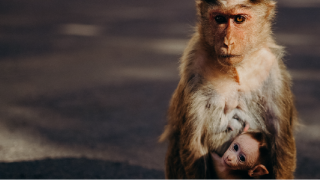
Will you help end the primate trade?
Help end the cruel trade in monkeys from Mauritius for experiments. We’re asking the people of Mauritius and beyond to join us in ending the cruel trade and export of monkeys for experiments.
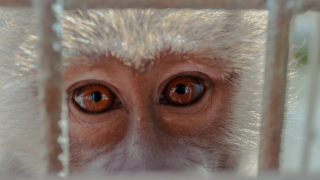
Stop airlines transporting monkeys for animal experiments
Thanks to our long-running campaigns, many of the world’s major passenger airlines refuse to transport monkeys for animal research.
Sadly, there are some that still do.

